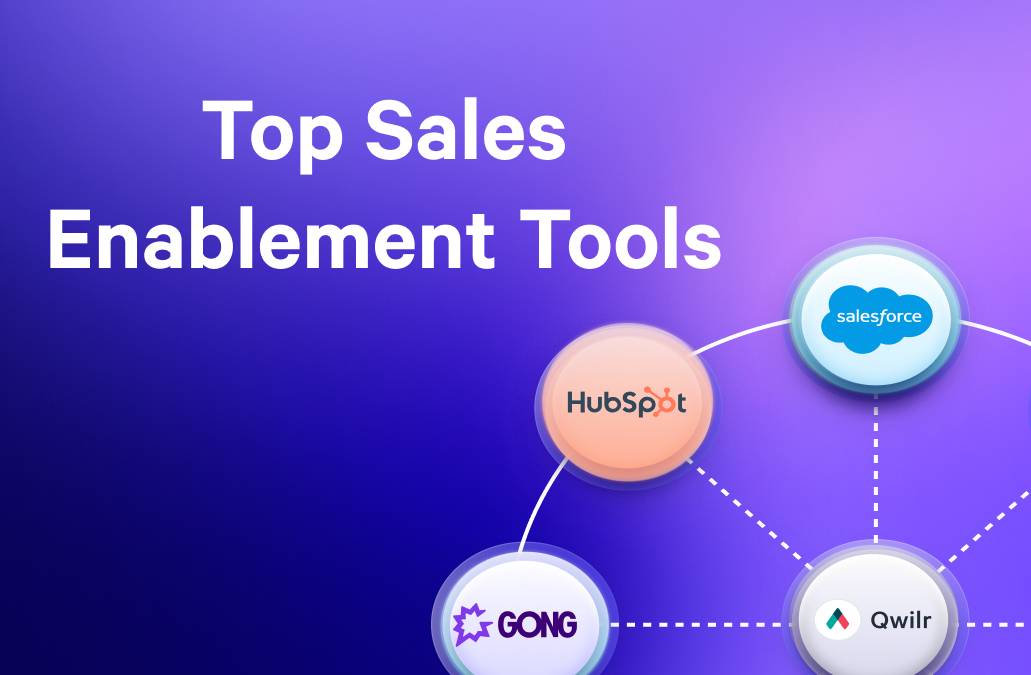In the competitive SaaS sales landscape, coaching has emerged as a key driver of long-term success. For this reason, we have compiled the most compelling sales coaching statistics, underscoring why sales coaching has become an integral pillar of any sales leadership strategy. We hope the following statistics are useful to new and experienced sales leaders looking to navigate this evolving field.
Key takeaways:
- Sales coaching boosts team performance, with real-time coaching increasing annual revenue by 8%.
- A structured coaching program can lead to a 28% higher win rate and 88% increase in productivity.
- Sales coaching plays a pivotal role in professional development, boosting mid-level performance and job satisfaction.
- Technology, particularly AI, is increasingly integrated in sales coaching, enhancing performance and fostering soft skills.
- Despite the benefits, sales coaching often lacks personalization, consistency, and organizational support.
The impact of sales coaching on team performance
Sales coaching is a powerful lever in boosting team performance, significantly shaping both individual and team achievement.
Revenue growth: Research indicates that implementing real-time, deal-specific coaching results in an 8% increase in annual revenue, as highlighted by CSO Insights [1]. This coaching approach, focused on immediate, actionable feedback, allows sales reps to promptly adapt and refine strategies.
Win rates: Notably, being part of a structured coaching program is associated with a 28% higher win rate, underscoring the significant impact of timely, relevant guidance on enhancing competitiveness and driving substantial business growth [2].
Maximizing productivity: Critical research also reveals the profound impact of coaching on sales productivity, with an 88% increase when compared to a mere 23% from training alone [3]. This emphasizes the transformative power of coaching over traditional training methods. However, despite its benefits, 73% of sales managers spend less than 5% of their time coaching [4]. This gap indicates a significant opportunity for organizations to leverage coaching more effectively and drive productivity improvements.
The best sales productivity tools can be helpful in facilitating improvement in this case.
Quota attainment: The structure of a company's coaching program significantly influences quota achievement. Companies that adopt a formal coaching process realize 91% of their total quotas, compared to 85% for those with a less structured approach [5]. This underscores the critical role of a well-defined coaching methodology in meeting targets and maximizing performance.
However, the value of sales coaching extends beyond team performance. Effective sales coaching can significantly enhance the professional growth and development of sales representatives, which is critical to long-term outcomes. We’ll cover this more in the next section on fostering an environment of continuous learning and excellence.
The role of sales coaching in professional development
The role of sales coaching in professional development is pivotal, markedly enhancing both performance and job satisfaction.
Boosting mid-level performance: High-quality coaching can elevate the quota attainment of the middle 60% of performers by up to 19%, illustrating coaching's crucial role in nurturing latent talent and optimizing overall team proficiency [6].
Enhancing job satisfaction: Sales representatives who receive quality coaching report a 19% increase in job satisfaction. This underscores the broader impact of coaching, which extends beyond performance metrics to significantly contribute to personal growth, career contentment, and a positive organizational culture [7].
Priority for sales managers: 74% of leading companies cite sales coaching and mentoring as the #1 priority for frontline managers [8]. This emphasizes the vital responsibility of managers in mentoring, guiding, and developing their sales teams, directly impacting their growth and success. This leadership in coaching is fundamental to nurturing a skilled, cohesive, and high-performing sales force.
These statistics underscore the multifaceted benefits of sales coaching, highlighting its significance in fostering professional development, enhancing individual growth, and sustaining high-performance teams.
How technology is impacting sales coaching
The integration of technology in sales coaching is becoming more pronounced, enhancing not only analytical functions like forecasting and commission planning but also fostering crucial soft skills such as negotiation and rapport building.
Digital tools and AI in coaching: A Gartner study reveals that 77% of sales organizations harness digital tools to boost performance, with 66% employing AI tools for personalized coaching. This underscores AI's role for sales reps as a key driver in sales, particularly in providing tailored and efficient coaching [7].
These tools may include sales content management software and sales enablement software.
Investment in sales tech: Teams that invest in sales training and development technology significantly outperform their peers. They achieve a 57% higher success rate, highlighting the vital role of technology in enhancing sales coaching outcomes [9].
The integration of technology in sales coaching is paving the way for more data-centric, efficient, and personalized training, and in turn, more effective, well-rounded reps.
In startups, this is of particular importance since nine out of ten fail, so the best sales tools for startups are a must for enabling your sales team to sell.
If you're interested, we have more coverage of sales enablement statistics and trends.
Other technology and sales tools that can help with sales coaching include:
We've also compiled a guide on the best proposal software, which can help sales teams using sales proposal templates.
Team relationships and culture insights
The impact of sales coaching on team culture and relationships is pivotal, fostering a conducive environment for individual and team growth.
Promoting collaboration: 58% of companies leverage group coaching to bolster teamwork, demonstrating its role in creating a productive and collaborative environment for sales teams [7].
Empowering continuous learning: With 83% of young employees eager to learn new skills, sales coaching is instrumental in creating a culture of continuous improvement, engagement, and skill enhancement, aligning with the modern workforce's aspirations and driving team cohesion and productivity [10].
Cultivating a coaching culture: Companies with a strong coaching culture report 51% higher revenue compared to their industry peers, highlighting the financial and cultural benefits of a robust coaching environment [7].
While the impact of sales coaching is generally recognized across the industry, there is certainly still room for improvement in how most organizations approach their coaching programs.
Room for improvement in sales coaching
Significant strides have been made, with many companies establishing mature sales coaching programs that emphasize the importance of an effective sales follow-up process. Yet, the need for more personalized coaching, particularly in crafting and executing follow-up strategies, is evident. Consistent engagement and strategic organizational support are essential to maximize the potential of sales coaching fully and ensure that sales follow-up practices are as impactful and effective as possible.
Personalization of coaching: 81% of sales people do not receive coaching that is specifically tailored to their unique needs [11]. This highlights a significant gap in the personalization of coaching programs. Tailoring coaching to address the individual strengths, weaknesses, and career aspirations of each salesperson can lead to more meaningful improvements and a more motivated sales force.
Consistency and frequency: Regular coaching sessions are essential to ensure the steady development and reinforcement of skills. However, regular coaching sessions are a rarity, with only 19% reporting a consistent schedule [12]. This irregularity can lead to disjointed progress and missed opportunities for growth. Establishing a structured and regular coaching schedule is crucial for maintaining momentum and ensuring continuous skill development and sales excellence.
Organizational support and resources: The success of a coaching program is heavily dependent on the support it receives from the organization, particularly from senior leadership.
The top challenges, as identified, include:
- 50% - Limited support from senior leaders,
- 42% - A lack of measurable impact from coaching efforts,
- 38% - Insufficient budgeting for coaching activities [13].
These issues highlight a broader organizational challenge where the importance of coaching, as well as the implementation of the best sales tools like sales proposal software, is not fully acknowledged or prioritized. To overcome these obstacles, it's essential to secure executive support for not just coaching initiatives, but also for the adoption of sales proposal software, which can be instrumental in enhancing sales productivity. Establishing clear metrics to evaluate the effectiveness of coaching and the impact of proposal software, along with allocating appropriate resources, is crucial to sustain and expand these programs for organizational growth and sales success.
While progress is evident in sales coaching, sales statistics indicate a clear need for more tailored, consistent, and organizationally supported coaching to unlock its full potential. The data underscores the importance of personalization, structured sessions, and strong leadership backing for a truly impactful coaching strategy. Addressing the prevalent gaps with insights drawn from sales statistics can fortify the sales coaching framework within organizations, leading to a more robust and results-driven coaching culture.
Further sources:
- Dooly
- Brainshark
- Jerry Acuff on LinkedIn Pulse
- Tribee
- The Center for Sales Strategy
- Alex Alleyne on LinkedIn Pulse
- Gitnux
- Forbes & Brainshark
- LLCBuddy
- MeetRecord
- Checkli
- MarketingProfs
- Jason Cannon on Linkedin Pulse
Final thoughts
For leaders and organizations striving for excellence, adopting strategic coaching practices is crucial. A commitment to continuous learning and leveraging technological advancements is not merely a pathway to success—it embodies a strategic imperative.
Engage with these insights, reflect on your organization's approach to sales coaching, and consider how you can harness the power of effective coaching to drive performance, achieve revenue targets, and pave the way for sustained business growth.
About the author

Brendan Connaughton|Head of Growth Marketing
Brendan heads up growth marketing and demand generation at Qwilr, overseeing performance marketing, SEO, and lifecycle initiatives. Brendan has been instrumental in developing go-to-market functions for a number of high-growth startups and challenger brands.
FAQs
Sales coaching significantly boosts team performance, influencing both individual and collective achievements. Key results include an 8% increase in annual revenue, a 28% higher win rate in structured coaching programs, and an 88% productivity boost compared to training alone. Moreover, a formal coaching process can increase quota attainment to 91% compared to 85% for less structured approaches.
Sales coaching effectiveness is typically measured by analyzing improvements in revenue growth, win rates, productivity, and quota attainment. Additionally, the impact on professional development, such as the advancement of the middle 60% of performers and increased job satisfaction, are important indicators of coaching success.
Coaching profoundly affects sales performance by enhancing win rates, increasing annual revenue, and boosting productivity significantly over traditional training methods. Structured coaching also influences quota attainment positively, underscoring its vital role in driving substantial business growth and competitiveness in the SaaS sales landscape.








